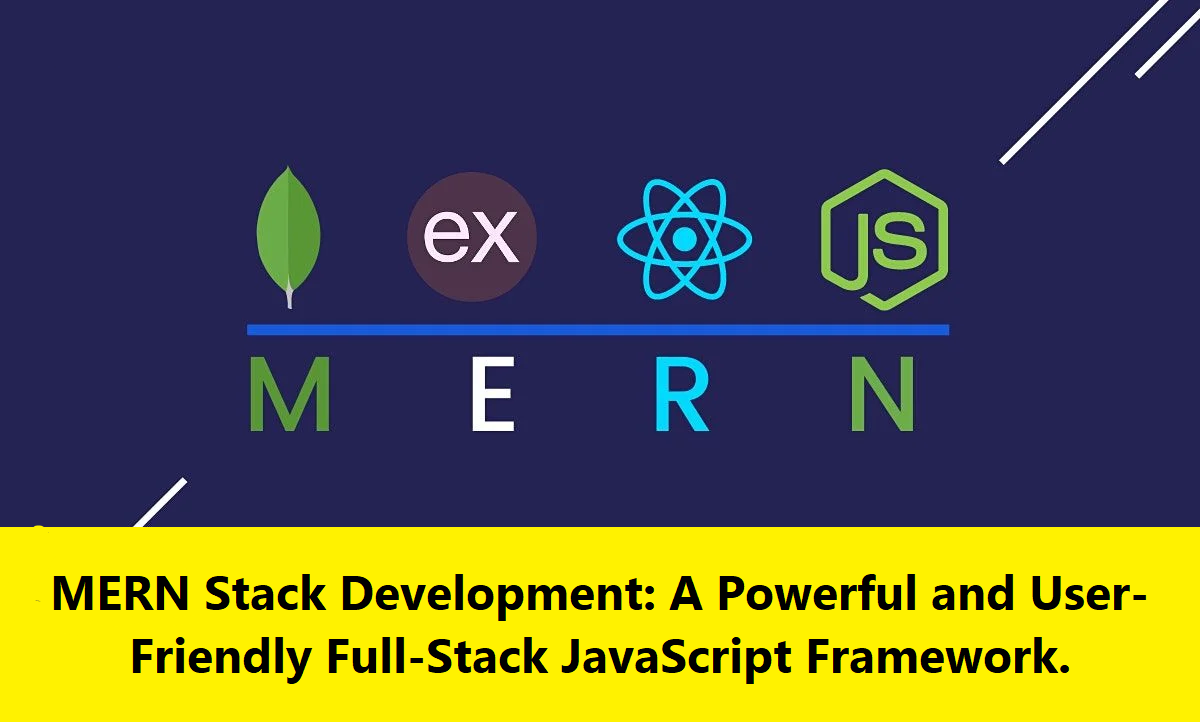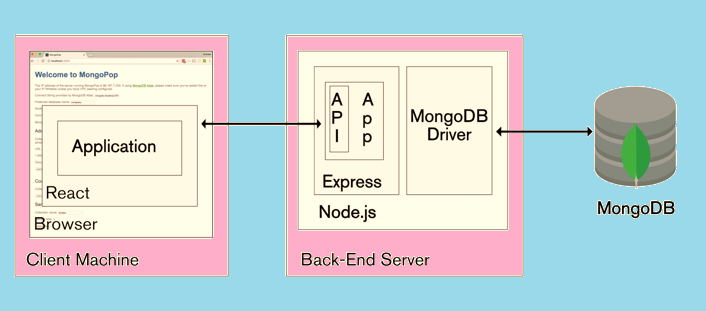
MERN Stack Development: A Powerful and User-Friendly Full-Stack JavaScript Framework.
Web development is a dynamic and exciting field that requires a combination of skills and technologies to create web and mobile applications. One of the most popular and effective ways to build web applications is using the MERN stack, which stands for MongoDB, Express, React, and Node.js. These are four powerful and robust technologies that are all based on JavaScript, the most widely used programming language on the web. In this article, we will explore what MERN stack is, how it works, and why it is a great choice for web development.
What is MERN stack??
MERN stack is a collection of technologies that provide an end-to-end framework for web development. It consists of four main components:
- MongoDB:
A document-oriented NoSQL database that stores data in JSON format. MongoDB is scalable, flexible, and easy to use. It allows developers to store and query data without worrying about schemas or relations.
- Express:
A web application framework that runs on Node.js. Express provides tools and features for creating web servers, APIs, middleware, routing, and error handling. Express simplifies and speeds up the development process by abstracting away the low-level details of Node.js.
- React:
A JavaScript library that creates dynamic and responsive user interfaces. React uses components, state, props, hooks, and JSX to render HTML elements on the web page. React also supports server-side rendering, which improves performance and SEO.
- Node.js:
A JavaScript runtime environment that allows server-side scripting and fast execution. Node.js uses an asynchronous, single-threaded, non-blocking I/O architecture that enables concurrent processing of multiple requests without blocking or waiting. Node.js also has a large and active community that provides many modules and packages for various purposes.
How does MERN stack work?
MERN stack works by using JavaScript as the common language for both front-end and back-end development. This means that developers only need to learn one language and can reuse code across different layers of the application. The following diagram illustrates how MERN stack works:

As you can see from the diagram, the user interacts with the web page through a browser. The browser sends requests to the web server, which is built with Node.js and Express. The web server handles the requests by performing logic, accessing data from MongoDB, or rendering views with React. The web server then sends back responses to the browser, which updates the web page accordingly.
Why should you use MERN stack for web development?
MERN stack is a powerful and user-friendly full-stack JavaScript framework that offers many benefits for web development, such as:
- Ease of learning and coding:
Since JavaScript is the common language for both front-end and back-end development, developers only need to learn one language and can reuse code across different layers of the application. JavaScript is also one of the most popular and easy to learn programming languages on the web.
- Scalability and performance:
MongoDB is a document-oriented NoSQL database that stores data in JSON format. MongoDB is scalable, flexible, and easy to use. It allows developers to store and query data without worrying about schemas or relations. MongoDB also supports sharding, replication, indexing, aggregation, and transactions for high availability and performance.
- Flexibility and simplicity:
Express is a web application framework that runs on Node.js. Express provides tools and features for creating web servers, APIs, middleware, routing, and error handling. Express simplifies and speeds up the development process by abstracting away the low-level details of Node.js. Express also supports various templating engines, authentication methods, RESTful APIs, and third-party libraries.
- User interface and interactivity:
React is a JavaScript library that creates dynamic and responsive user interfaces. React uses components, state, props, hooks, and JSX to render HTML elements on the web page. React also supports server-side rendering, which improves performance and SEO. React also has a rich ecosystem of tools and libraries such as Redux, React Router, Next.js, Gatsby.js, Material UI, etc.
- Efficiency and productivity:
Node.js is a JavaScript runtime environment that allows server-side scripting and fast execution. Node.js uses an asynchronous, single-threaded, non-blocking I/O architecture that enables concurrent processing of multiple requests without blocking or waiting. Node.js also has a large and active community that provides many modules and packages for various purposes such as Express, Socket.io, Passport.js,
Conclusion
MERN stack is a powerful and user-friendly full-stack JavaScript framework that provides an end-to-end solution for web development. It consists of four technologies: MongoDB, Express, React, and Node.js, that are all based on JavaScript. MERN stack offers many benefits for web development, such as ease of learning and coding, scalability and performance, flexibility and simplicity, user interface and interactivity, and efficiency and productivity. MERN stack is a great choice for building web and mobile applications that are fast, reliable, and engaging.
